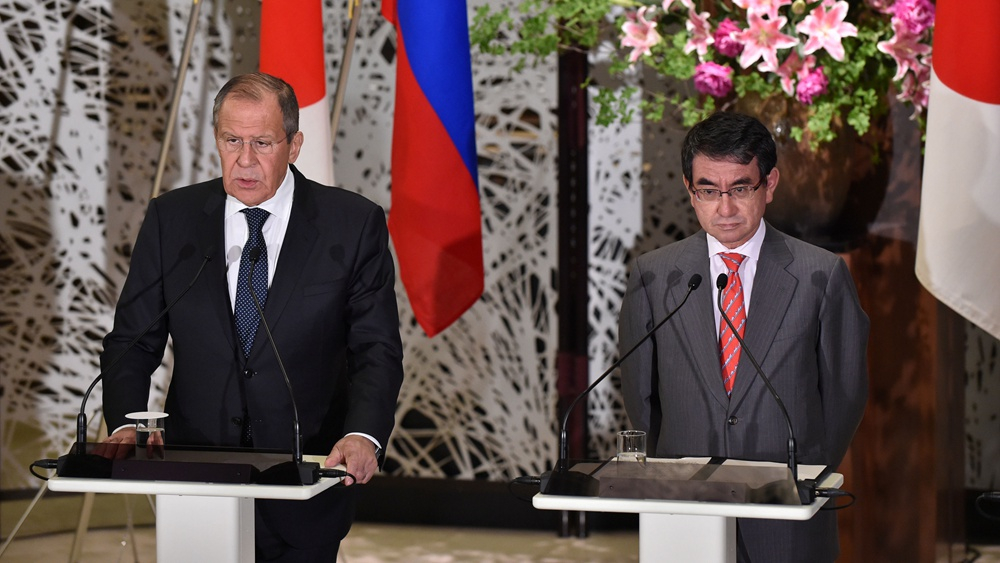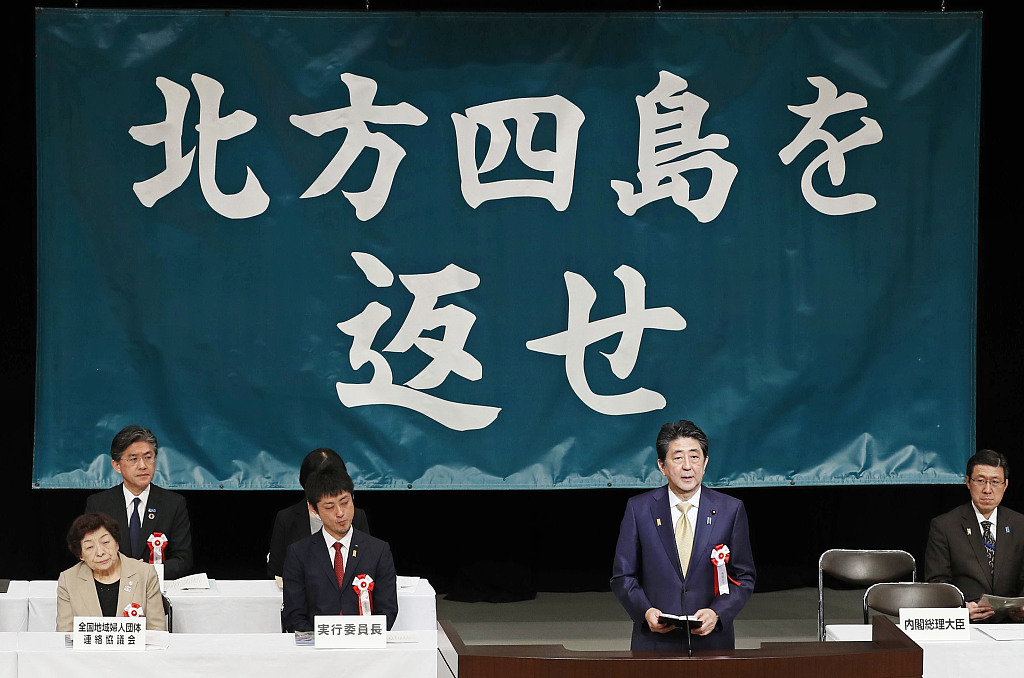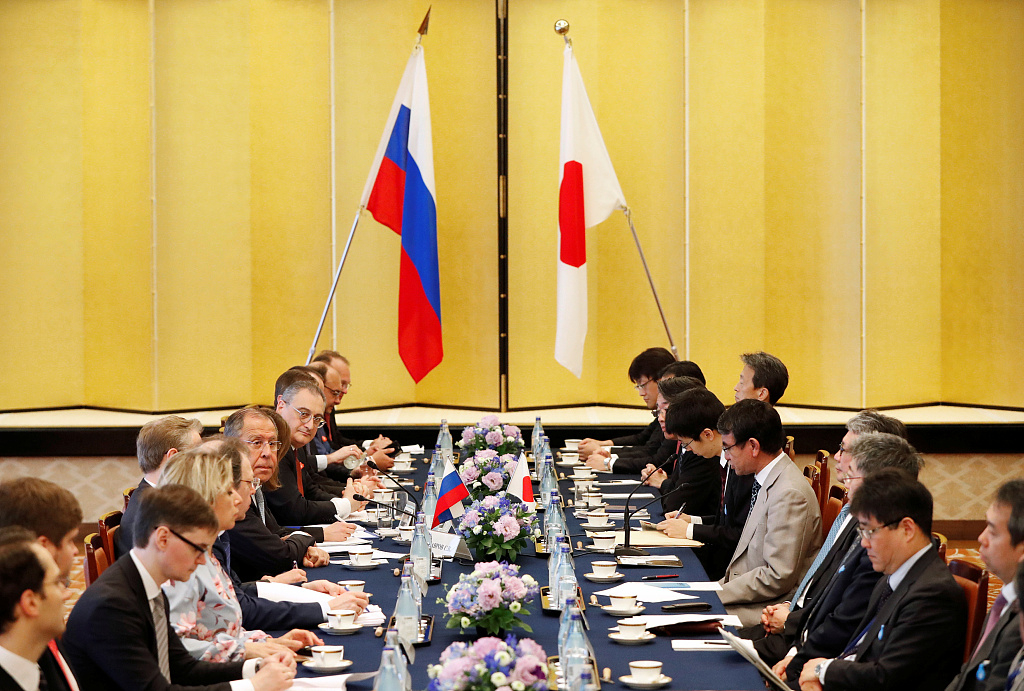
Asia Pacific
21:10, 31-May-2019
Japan, Russia discuss joint economic activities on disputed islands
CGTN
01:00

Japanese and Russian foreign ministers on Friday held talks in Tokyo over a protracted territorial row that has prevented both sides from concluding a post-World War II peace treaty.
Japanese Foreign Minister Taro Kono and his Russian counterpart Sergei Lavrov found common ground on bringing previous plans to conduct joint economic activities on the disputed islands to fruition, although some differences on the long-standing spat still remain.
At a joint press briefing held at the conclusion of their talks, Kono said that some progress had been made in ways both countries could provisionally move forward.
"We confirmed that we will go forward in a flexible and constructive manner," Kono said.

Japanese Prime Minister Shinzo Abe (R2) speaks at a meeting to seek the return of four Russian-held, Japanese-claimed islands off Hokkaido, in Tokyo, Japan, February 7, 2019. /VCG Photo
Japanese Prime Minister Shinzo Abe (R2) speaks at a meeting to seek the return of four Russian-held, Japanese-claimed islands off Hokkaido, in Tokyo, Japan, February 7, 2019. /VCG Photo
Lavrov, for his part, highlighted the fact that differences still remain between both countries on the territorial issue, and restated Moscow's position that starting visa-free travel between Japan's northernmost prefecture of Hokkaido and Sakhalin in Russia's Far East could be a step forward for both sides.
He added that in the future the program could be expanded to cover all of Russia and Japan.
As far as signing a peace treaty is concerned, however, Lavrov said that the differences between both countries on how to achieve this are "not insignificant."
The dispute pertains to both countries' rival claims to four Pacific islands, called the Northern Territories in Japan and the Southern Kurils in Russia.
The four islands used to belong to Japan, but were seized by the Soviet Union after World War II and were incorporated into Russia following the collapse of the Soviet Union.
Tokyo, however, maintains that Moscow illegally occupied those islands.
Japanese Prime Minister Shinzo Abe has resolved to settle the dispute and sign a peace treaty with Russia.

Russian Foreign Minister Sergei Lavrov speaks during a meeting with Japanese Foreign Minister Taro Kono at the Likura Guest House in Tokyo, Japan, May 31, 2019. /VCG Photo
Russian Foreign Minister Sergei Lavrov speaks during a meeting with Japanese Foreign Minister Taro Kono at the Likura Guest House in Tokyo, Japan, May 31, 2019. /VCG Photo
Read more:
But experts on the matter believe the immediacy of such a deal may be overly optimistic. Abe himself has backed away from pushing to secure the return of two of the smaller islands, in place of pursuing joint economic activities, to bolster bilateral ties while the fundamental dispute rumbles on.
In their previous talks held in Moscow on May 10, the two foreign ministers agreed to expedite talks on carrying out joint economic activities on the islands.
Such activities span defense, search and rescue operations, medical areas, industry promotion and energy development, in line with a previously proposed plan, which also covers aquaculture and tourism.
The cooperation plan was proposed by Abe in 2016, and was purportedly to become an important foundation for future ties.
Both foreign ministers also announced during their talks on Friday that Abe and Russian President Vladimir Putin will meet for talks on the sidelines of the Group of 20 summit to be held in Osaka next month.
2105km
Source(s): Xinhua News Agency

SITEMAP
Copyright © 2018 CGTN. Beijing ICP prepared NO.16065310-3
Copyright © 2018 CGTN. Beijing ICP prepared NO.16065310-3